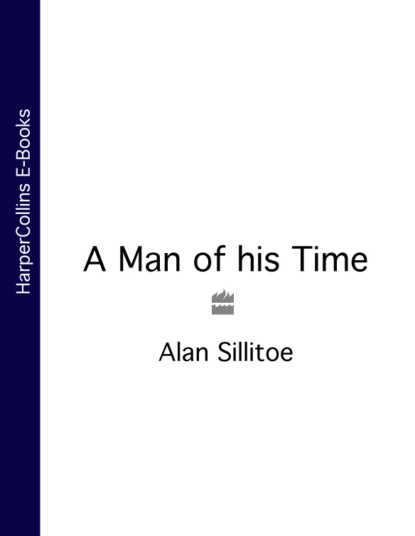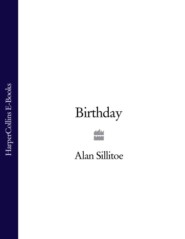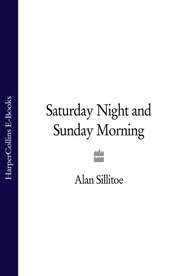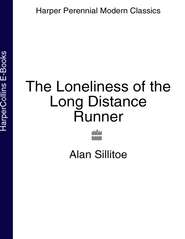По всем вопросам обращайтесь на: info@litportal.ru
(©) 2003-2024.
✖
A Man of his Time
Настройки чтения
Размер шрифта
Высота строк
Поля
‘I expect you heard the first time.’ Titchbum’s finger came towards him. ‘Some people don’t know their place,’ he said to his companions. ‘Not like when I was young. And why might you be going to Wales?’
A word not spoken was a word saved, which might later be used with more effect on somebody else, if you were in the mood to let it. One of the few luxuries in life was the right to be silent, and you couldn’t let anybody take it away.
Titchbum’s friends looked at Ernest as if, since they had to truckle to their gaffer, so ought he. ‘I suppose he’s lost his tongue.’ Titchbum had a dry annoying I’m-the-cock-of-the-walk laugh. ‘Like a lot of young men who don’t have one to lose.’
Titchbum’s finger came too close. Words could be stopped from invading the mind, but the finger in his direction was different. Titchbum, as a ‘self-made man’ too much like Ernest’s father to tolerate for long, made him wonder why the fool had taken against him.
‘He must be a country bumpkin.’ Titchbum couldn’t leave well alone, as if he’d got worms, or a canker was eating his stomach. Maybe he’d drunk too much whisky with his breakfast, in which case Ernest would have understood, and ignored him.
‘I’d be quiet, if I was you.’ One of his men had caught Ernest’s stare. ‘He doesn’t work at our place.’
‘Neither will you, for much longer, if you don’t keep your opinion to yourself. Somebody like him doesn’t know when one of his betters is talking to him. I only asked a civil question.’
Ernest got up, fingers spread against the ceiling to steady himself. Titchbum couldn’t have realized his height, and remained sitting as a graven fist came close to his face. ‘Leave me alone, or I’ll throw you off the train.’
He sat to look at a pair of fine cavalry mounts running across a field – a tall trooper standing with a saddle over his arm.
‘It’s Droitwich in a minute,’ Titchbum said. ‘We get off there.’
At least one of them deserved a pasting, though none was worth hanging for. He laid a red-spotted handkerchief across his knees, opened a clasp knife, took cheese, bread, and two hard-boiled eggs from a paper bag, thanking his mother for a hungry man’s banquet, while the train rattled, and puffed its constant whistle. He could talk to other men in the pub for hours and not feel hungry, but on his own he ate as if reluctant to waste time, however much there was to spare in a train. A man who came in at Droitwich tipped his cap and wished him good morning. He received a nod in response; and then silence to Shrub Hill station in Worcester.
TWO (#ulink_096ef28a-4580-5ae0-ac65-a5c6ff06e290)
George had drilled in the procedure to get to the Great Western depot on Foregate Street. ‘You should be able to keep everything in your noddle and find the way, but be careful not to get drunk on Lea and Perrins Sauce! If you do, and you’re lost, don’t be too proud to ask. I know what you’re like. You’re a stuck-up young bogger. People enjoy it if you ask directions. Gives ’em a chance to do a good turn. So if you aren’t sure, open your haybox.’
Every landmark stood out as clear as the items of steel his father sent him to get from the wholesale merchants as a boy, and woe betide him if he came back with measurements that didn’t tally. He scoffed at George doubting his ability to keep all instructions in mind. George said that Ernest, being so tall, found it hard to see the ground when walking, yet always avoided treading in horse and dog muck. ‘I can’t think how you do it.’ Ernest did, had trained himself to notice what was everywhere with little or no swivel of the eyes.
After the church his usual striding walk carried him up Shrub Hill, across the canal, and forking left into a road called Lowesmoor. No station was hard to find, coal in the nose and smoke above the sheds, always a flow of traffic towards it, shunting noises to pull you the right way, a jumble of carriages and carts on getting there. The smile wasn’t entirely hidden by his moustache: George didn’t know everything, was a bit of an old man at times, too set at forty in the path of their father, something to pity him for.
His throat was as dry as the day, so he ordered a fourpenny pint in the crowded taproom of the Star Hotel, an elbow at ninety degrees so as not to be put off his drink by a nudge from the dinnertime riff-raff who, he supposed, were common labourers from some building job. Near enough to the wall clock, he took out his watch and reminded himself not to be late for the half-past two to Pontypool. The taste of his ale was swill compared to the Nottingham stuff, but he pushed his tankard forward for refilling, which would last him until Wales, where George had promised a very fine bitter – though we’ll see how right he is.
He settled himself into a window seat looking left, as know-all George had advised. When a woman who was sixty if she was a day pushed into the crowded carriage carrying a large basket with a lid, he stood to put it on the rack for her. ‘Are you going far?’
The train was crossing the Severn. ‘Only to Ledbury.’
The poor drab looked worn out, a bonnet lopsided on her grey hair. Must have been in Worcester selling her wares, for the basket was almost empty. ‘How far’s that?’
‘About forty minutes.’ A toothless smile told him she must live on gristle and baby food. ‘I’ve done it twice a week for the last twenty years, my son.’
‘Take my seat, then.’ Nobody else looked like getting up, as if she was beneath them because of whisky on her breath. ‘I’ve got legs to stand on,’ bending his head only to see more fields.
The train stopped at what looked like the side of a mountain, heavy cloud almost hiding big houses on the lower slopes. Trees and bushes shrouded a summit half-hidden by rainy mist, scenery reminding him of Derbyshire. The air was close, though he only ever sweated in the forge, where it ran off you like drink.
Most of the people got out, and a tunnel later the sky was blue. He seemed to have been travelling days instead of hours, Lenton far behind, glad to be away from working under the grudging eye of a father never satisfied with anything he did, though what Master Blacksmith would be?
Nothing to think about, he fancied another drink sooner than expected. Travelling put salt in your windpipe, and then he was diverted by a youngish woman in all-mourning black getting on at Hereford. He couldn’t show breeding by giving up his seat, because the carriage was empty, but the leather portmanteau he lifted onto the rack for her strained his arms as if filled with lead. Observing it, she told him it contained her devotional books.
Bibles and hymnals, it serves me right, but I couldn’t let her break such pretty little hands – rewarded in any case by the lift and fall of her bosom as she settled herself.
She didn’t thank him, not strictly needed, a good sign because if he talked to her later she might recall her lapse of courtesy and make it easier for him than otherwise. He took in everything without seeming to stare.
She wore a mantle and muffs, pale lips sighing as she took off her bonnet and laid it on her knees. The lifted veil showed a face so porcelain-fine he knew he wouldn’t deny himself a word or two later. Auburn hair, roping down her back to contrast with deep mourning, recalled Mary Ann’s at home, though he saw good reason to put her out of mind for a while.
Boots buttoned to the hem of her skirt shone black like his own, but a maid hadn’t buffed them up or she wouldn’t have been on the same class of train. She absorbed the landscape as if to draw out colour that might lighten her blackest of garbs. One hand lapped over the other didn’t hide her wedding ring, yet he thought it time to divert her from whatever tragedy soaked her through and through, and who better than himself to give such a service?
With the flicker of a smile he said: ‘I started out from Nottingham this morning’ – a remark which could bring no response, as he well knew, but you had to begin somewhere, though she didn’t even turn her head from a family of sheep on the hillside. Words he hadn’t used that day welled up for spending, could now let her know that someone in the world had worse troubles than her own. ‘A couple of miles before we got to Derby a chap threw himself out of the train.’
She was as much disturbed at being spoken to as by his shocking revelation. ‘Oh dear!’
‘It nearly made me late for the change to Worcester.’ Time to keep quiet, even if she said no more, and look at birds on telegraph wires, blocked by a cutting. He wondered what the label on her portmanteau said, but the wheels of her curiosity turned sooner: ‘Why did he commit such a terrible act?’
George had given an imitation of the Welsh lilt one night after a few pints in the White Hart. ‘Now you have me. I can’t think why. He was sitting next to me one minute, then the handle rattled and out he went. He was too quick for anybody to save.’
Her mouth showed small white teeth. ‘What a terrible sin,’ she repeated.
He wanted to hear more from her, so went on: ‘He wore a good suit, so it wasn’t poverty or debt that drove him to it, though you can’t always tell. Perhaps he’d got himself up specially this morning knowing what he was going to do. Some people only do a thing like that when they’re smartly dressed, as if they like to look formal as they float into hell. Or maybe he thought to do himself in only at that moment.’
‘But why?’ Not much colour came into her cheek, but it was a start. ‘My goodness, why?’
He wondered whether he hadn’t overdone it, though her question called for an answer. ‘Perhaps something in the newspaper upset him. Just before he jumped he’d been reading one, and when he went out it was still in his hand, as if he might want to finish what was in it when he got to where he thought he was going. You can never tell much about a chap like that.’
Her lips parted again, as if a smile was somewhere in her after all, though it was far too early. ‘Was the poor man dead?’
‘He could have been. He wasn’t moving when he was on the ground among the nettles.’ He liked the nettles part, amazed at what his lips came out with when he got going. ‘But just as the train was starting two constables lifted him on a cart and took him away to the infirmary. Unless the morgue was the place they had in mind.’
It was wrong to tell lies, but a plain tale to console was something else, and he waited for more words from her, though if they didn’t come it would be no loss to him. George always said there was a time to speak and a time to keep quiet, and you should always know when. If you let others speak it saved you bothering, and you might get to know something. Only talk when you knew what you wanted to say before opening your mouth. Then close it when you’d finished. On the other hand words could be like tadpoles. You might have them by the tail but they often slipped out.
Land rose mountainously to either side, the train spindling a river whose name he didn’t know, fields and rivers much the same everywhere. The lovely woman was so shy he forgot, his intention not to speak till she did. In any case he wondered about the wedding ring. ‘Are you travelling far, miss?’
She stared numbly. ‘I’m a married woman.’ A young and handsome man was only trying to be kind. ‘Not very far. I shall be alighting at Newbridge.’
George had mentioned it as two stops before his, so she would need his help at Pontypool on changing to the Swansea line. ‘My name’s Ernest Burton,’ he said, now that the waters of her speech had been broken. ‘But call me plain Burton. Everybody does. I’m going a bit beyond Newbridge, where my brother has a smithy. He tells me it’s a dirty little hole, though good for business.’
‘You could say the same about most settlements in the coalfields.’ She flushed, as if not sure her judgement was reasonable.
‘You’re in black, I see.’ Hardly possible not to, but what could you say? Her ability to speak seemed an accomplishment, so he had to come out with something. ‘You have my condolences,’ hoping that whatever happened had been long enough ago.
‘Thank you.’ Tears shone like pearls on her pale cheeks, and the ironed handkerchief from his pocket was there before she could pull hers from the muff, which she accepted as one was entitled to do in the land of mourning, so that if nothing else happened he’d kiss the memory of her cheeks on soft cotton as long as the imprint lasted.
‘My husband died three weeks ago.’ She looked towards the luggage rack, as if his image might appear by Ernest’s shoulder or as if, he thought, his body might be in the portmanteau.
Killed by a horse? Sunk with delirium tremens? Bludgeoned to death by a footpad? Got consumption and coughed himself to death? Suffered a growth? Had a seizure? He tried to guess. ‘That’s a terrible thing to have happened.’
The young man was as if sent by Our Lord to comfort her. ‘He was an engineer at a coalmine in Staffordshire.’
‘Such places are dangerous. I’ve never been down one.’
Another dab at her left eye. ‘I wish my husband hadn’t. It took all day to find his body under the coal, but the undertaker did a beautiful job.’










